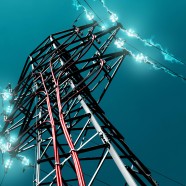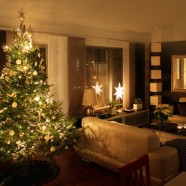Reasons Why You Need Lightning Protection for Your Home or Business
There are more lightning strikes per square mile in Florida than in any other state in the country. Floridians are used to lightning storms and the damage they can cause. While you can’t prevent all the damage these storms create, you can install electrical protection in your home or business, cutting down the chances of your suffering damage or financial loss because of lightning strikes. Lightning protection comes in many forms, and each one can cover a portion of your property or one type of belonging. One size doesn’t fit all. You have to look at your particular needs before contacting a commercial electrical contractor to install your own lightning protection.
Fire Damage
The largest danger, certainly in terms of money, is from fire caused by lightning bolts striking buildings. Lightning rods, or air terminals, take the energy from a lightning strike and direct it to a grounding pad in the soil beside the building, keeping the energy from catching the roof on fire. Many people believe that lightning rods attract lightning. They don’t. What they do is take care of lightning that’s going to strike your building, anyway, changing it from dangerous to harmless.
Data
Almost every home and business has multiple places that store data of one kind or another. The electrical surge from a lightning strike can ruin sensitive hardware and erase years of saved data. Among the vulnerable machines are:
- Desktop computers
- High definition televisions
- Game consoles
- High end stereos
- Laptops and tablets plugged into chargers
Any piece of electronic gear not plugged into some sort of surge protection is likely to suffer data loss or complete breakdown in the event of even a minor power surge caused by lightning. The best protection you can have is a combination surge suppressor and mini power source that minimizes the damage from the original surge, plus provides power so you can shut down your electronics in case of a power outage.
Insurance
Almost every insurance company in the country offers discounts for providing lightning protection. In some parts of the state, it may be a required portion of your policy, especially for some business plans. Anything that minimizes the chance of danger and loss is a smart financial move, and insurance companies recognize this. Check with your insurance broker to find out how much of a discount you can get by installing extra electrical protection.
Landscaping
Landscaping adds to the value of your home or business. You may have hedges or high bushes installed, or even tall trees on your property. In a storm, lightning is likely to hit the tallest object around, and this is often a large heirloom tree that’s been on the property for decades. If the tree isn’t protected, it can catch on fire or even be killed outright. A commercial electrical contractor can install lightning protection on your biggest trees. These systems include copper poles that lead lightning to the ground, keeping the power away from the tree itself in case of a lightning strike. Installing one strategic piece of lightning protection can save your trees, or avoid damage to your roof from broken branches due to lightning striking the heart of the tree.
Read More5 Reasons You Need Surge Protection for Your Home or Business
In southern Florida residents are used to living through thunderstorms on an almost weekly basis; so much so that the state is the lightning capitol of the country. Living through so many lightning strikes every year might make you blasé about the dangers they pose to your property, but your home and business both need and deserve surge protection. Whether it’s from power starting up after a blackout or lightning striking a nearby transformer, electrical surges can do thousands of dollars’ worth of damage unless you’ve got a surge protector installed.
What is Surge Protection?
So, what is surge protection and why do you need it? The term “surge” refers to fluctuations in the amount of electricity running through a line. This can vary, and if it suddenly peaks at a very high level, it can burn out or damage multiple systems in your home or business. Surge protection is a way to even out the effects of the electricity, keeping the power running without sending spikes of power to your appliances. Surge protectors absorb the brunt of the shock, allowing it to stop before it moves on to damage your expensive electronic equipment.
Computers
If your business is current in the digital age, the biggest danger you may find in thunderstorms is with your computers. Without a surge protector, one lightning strike can shut down your entire computer system, wiping out memory and frying hard drives. A dedicated protector places between your computer and its power source will keep your data from disappearing, and an advanced version will even supply 30 minutes of power or more to give you the opportunity to shut everything down before it suffers any damage.
HVAC Systems
You might think of adding surge protection between your computer and its power source, but what about a more expensive system, your home HVAC complex? Electrical surges can silently kill air conditioners, dehumidifiers, and even furnaces, leaving you with hot and humid Florida weather in your house and a large repair bill. Call someone with electrical contracting experience to have them inspect your HVAC system. He’ll recommend what type of improvements you need, if any.
Appliances
When you think of power surges burning out appliances, you might picture hair dryers and televisions, but the massive surges that are common in Florida can take out your kitchen appliances as well as the smaller items in your house. An up-to-date appliance surge protector is crucial for protecting the larger appliances in your house that represent such a big investment in your home, as well as for your daughter’s beloved planetarium nightlight.
The Warranty
Many reputable manufacturers of surge protector power strips offer a home warranty covering any equipment plugged into its outlets. In fact, one U.S. Model offers a $300,000 warranty for anything you have plugged into their surge protector during power surges. That may be the least expensive homeowner’s insurance addition you’ll ever find.
Power Surges Over Multiple Wires
You may have most of your home covered by a circuit breaker and multiple power strips, but power surges can come through cable and phone wires as well as the major power cables. Make sure you have surge protection with the ability to connect with these wires, to give extra protection to televisions, telephones, and computers.
For more information on your home or business surge protection requirements, call us today for a free consultation.
Read MoreResidential Electrical Safety Tips for the Holidays
The holiday season sees a higher electrical usage in residential properties than almost any other time in the year. With lights and other decorations being added indoors and out, additional appliances being used to prepare holiday meals, and multiple new gifts being plugged in at the same time, homeowners need to be extra vigilant to keep safety in mind. Not only is higher residential electrical usage a source of higher utility bills, it’s also the source of accidents and fire damage that’s not often seen any other time of the year. Common sense and preparation are key to electrical safety during the holidays.
Cords
Most people reuse strings of lights and other holiday decorations over and over each year. While most decorations are meant to last for years, it’s crucial to inspect each one before using it. Cords can snap or wear, especially if stored in extreme temperatures, and fraying wires are a certain fire hazard. Once you’ve determined that all your cords are in good condition, take care when stringing them over your house of property. Make sure none of the cords are pinched underneath or behind heavy furniture or hidden under rugs where they can be stepped on and damaged, and always use tape to secure cords in place, never nails or staples.
Lights
Strings of lights may be the most common of all holiday decorations, but they can also be the largest source of power usage and fire hazards. When decorating your outside property with light strings, always plug the lights into a GFCI outlet to protect your property from damage due to electricity coming in contact with moisture. Never connect more than three strings of lights together, and wrap all connections with plastic wrap to keep snow and ice away. Drape lights over bushes carefully, making sure branches don’t come in contact with light bulbs. Consider replacing your old traditional strings of lights with the newer LED lights. LED holiday lights have a wide range of advantages:
- LED lights are brighter than traditional bulbs
- They come in a large variety of attractive colors
- They use much less power, making them less expensive to use
- LED light bulbs are cool to the touch when in use, reducing the danger of fire damage
Always use a wooden or fiberglass ladder when hanging holiday lights, and always turn off all lights before leaving home or going to bed.
Cooking
The holidays often mean parties and family dinners, and this calls for cooking larger amounts of food than during the rest of the year. Many people have small appliances, such as deep fryers, slow cookers, stand mixers, and blenders that only get used once a year. This additional usage can cut down on counter space, which can turn your kitchen into an electrical danger zone. Always plug appliances into an approved GFCI outlet. Do not string cords through dishwater or puddles, and keep them away from other appliances. Use one appliance at a time, or at least one per cooking area. Inspect each appliance, including the plug and cord, before using it, and unplug each one as soon as it’s no longer in use.
Other Tips
Keep residential electrical safety in mind throughout the holiday season while enjoying the time with friends and family. During cold winter days, keep electrical space heaters away from rugs, curtains, gifts, and holiday decorations. Test your smoke alarm and replace the batteries if needed. Avoid overloading electrical outlets with too many plugs; instead, use a power strip with a circuit breaker built in. Keep all electric cords out of reach of small children and chewing pets, and only allow responsible adults to plug in new toys and gifts for children to play with.
Read More



Recent Comments